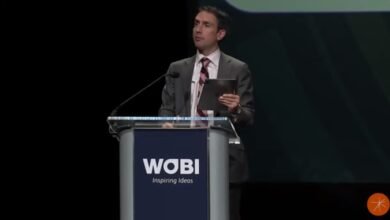
By | Papa CJ | Comedian • Executive Coach • Author • Oxford MBA • HBR Writer • papacj.com • WIT of the Week newsletter on LinkedIn, papacj.substack.com & papacj.medium.com • I uplift others & help them be the best version of themselves
Bored of boardrooms? Adopting a comedian’s mindset can bring value to individuals, startups, businesses and beyond.
When you hear the phrase show business, you think more of the show than of the business. At first glance, stand-up comedy and sit-down meetings have little in common. But take a second glance, and you’ll find that the good stuff a comedian’s mindset can bring to the corporate table is no laughing matter.
Marketing, communication and content strategy
We live in a world of limited attention spans, a world where social media platforms count three seconds on a video as one ‘view’. There are specific techniques we comedians use to grab people’s attention ASAP and bring people over to ‘our point of view’.
Pro tips
- Topical content grabs attention faster (#TrendingTopic) but is relevant for only a short period of time.
- Local humour is more engaging but doesn’t travel very well. So a joke about Calcutta (India) may not be funny in Singapore because in Singapore they drive on the left of the road and in Calcutta, we drive on what is left of the road. That’s a joke obviously. It’s because the audiences in the two countries have different cultural references.
When creating a marketing, communication or content strategy, keep the above in mind when deciding on how much time, money and effort to invest between different content. As a comedian who performs across the globe, as a general rule, 80% of my content is what I call universal content. It works anywhere in the world and passes the test of time. In a business context, that would be similar to messaging about your brand values.
The balance of 20% however, is very specific to my audience. When I land in a new country, I study their history and politics. I familiarise myself with recent news and scandals. I talk to taxi drivers and locals to get their point of view on the issues facing the country. When I get on stage, my first ten minutes are purely about the issues that my local audience is very interested in. Then I know I’ve got their attention. In my consulting and coaching experience, the same tactic works very well for businesses. A case in point would be the advertising strategy of Amul in India.
Business Storytelling
Chairpersons of companies have often approached me to help them with speeches and presentations. It has always surprised them to find that more than injecting humour, restructuring their stories and cutting out the fat is the key value-add.
Pro tips
- Start strong, end strong, and have dopamine hits strategically placed along the way. You need to keep giving them doses of useful information or value at regular intervals to keep them engaged.
- Inject relatable emotion wherever you can to create a connection with your audience. If you get lucky, you’ll get into the hearts of your listeners and if you’re luckier, you’ll get into their wallets too.
Cutting out the fat brings me to business development.
Business Development and Fundraising
The King Gong show at The Comedy Store in London has three audience judges who hold a red card up the second they don’t like something you say. Or how you say it. Three cards up and you’re gonged off. On average, a comedian lasts 90 seconds in this brutal bucking bull.
The techniques that stand-ups employ to succeed in this environment work beautifully for startups when pitching to investors.
Pro tips
- Have crystal clear communication.
- Cut out every single word you don’t need.
- Deal with audience objections swiftly.
- Get to the punchline (point) as quickly as possible.
Next is ideation.
Ideation
Since by its very nature, every joke requires the element of surprise to induce laughter, the comedian’s brain is programmed to think differently.
We look at business challenges from unexpected angles and without the baggage of the knowledge and experience that organisations have, and bring innovative solutions to the table. There are simple techniques that can allow you to do the same in a business context.
Pro tips
- Ask yourself who the three people are whom you admire the most, dead or alive. Then ask yourself how they would approach your problem.
- Do the same with professions. How would a scientist, footballer or dancer approach your problem?
The Great Ormond Street Hospital for children in London had a very high mortality rate in the mid-1990s. A study found that the reason for this was the errors caused during the handover of patients from the surgical unit to intensive care.
The Ferrari Formula 1 pit crew team were brought in to look at the hospital’s processes. There were three key things the Ferrari team did differently from the hospital. They had one person in charge of the entire operation. Different members of the pit crew had specific tasks given to them which were performed in a sequence. And they worked in complete silence. The hospital implemented changes based on these pieces of input and was able to reduce technical errors by 42%, thereby lowering the mortality rate.
Strategic comedy tools apply to business too.
Strategic Innovation
As professional comedians, we don’t have the freedom to mess up publicly. However, if we always want to succeed, we will only play safe, stay away from innovation, and stagnate.
So we go to small open mic nights where we have the ‘luxury’ to make mistakes, and can experiment and take risks to figure out what works and what doesn’t. The question I throw at organisations is, “Where is your open mic night?”
Pro tips
- Ask yourself where you will go to experiment and make mistakes?
- What are the risks you’d like to take?
Then, of course, there’s leadership.
Leadership
In my Naked Leadership leadership session, based on my comedy special, the key aspect I urge the audience to explore is authenticity. You can only be the second-best Steve Jobs. But you can be the best <you> on the planet. So, who is that genuine you, and how can we build on that foundation?
Also, leadership may occasionally pass orders one way, but comedians are finely attuned to finding the balance between being true to their own voices while anticipating and managing audience response. All this while being comfortable with uncertainty.
Pro tips
- Remember that vulnerability and empathy are powerful tools for creating meaningful connection and being able to influence.
- Ensure that you engage in a two-way conversation and are flexible enough to spontaneously adapt basis your audience’s feedback.
Finally, there’s humour.
Humour
For decades, Richard Branson has advocated humour as a critical leadership skill.
It is a learnable skill that can disarm, help build rapport and trust, increase motivation and job satisfaction, foster respect — and even increase people’s willingness to pay for something.
So, getting a comedian on your advisory board may not be a bad thing. That is if you don’t have a bunch of clowns on it already.
(FYI, I’m on the board of a global consulting firm – 4P Consulting. No clowns there. Yet!)

Thank you for subscribing to this newsletter. I’d LOVE to hear your comments on this piece. If you’ve enjoyed it, do share it with anyone whom you think might appreciate it.
Read my work: Medium | Substack | LinkedIn | Harvard Business Review
Get my autobiography: India | USA | UK
Get in touch or book me for an event: papacj.com
Social media: Instagram | Twitter | YouTube | Facebook | LinkedIn
Republished with permission and originally published at Papa CJ’s LinkedIn






